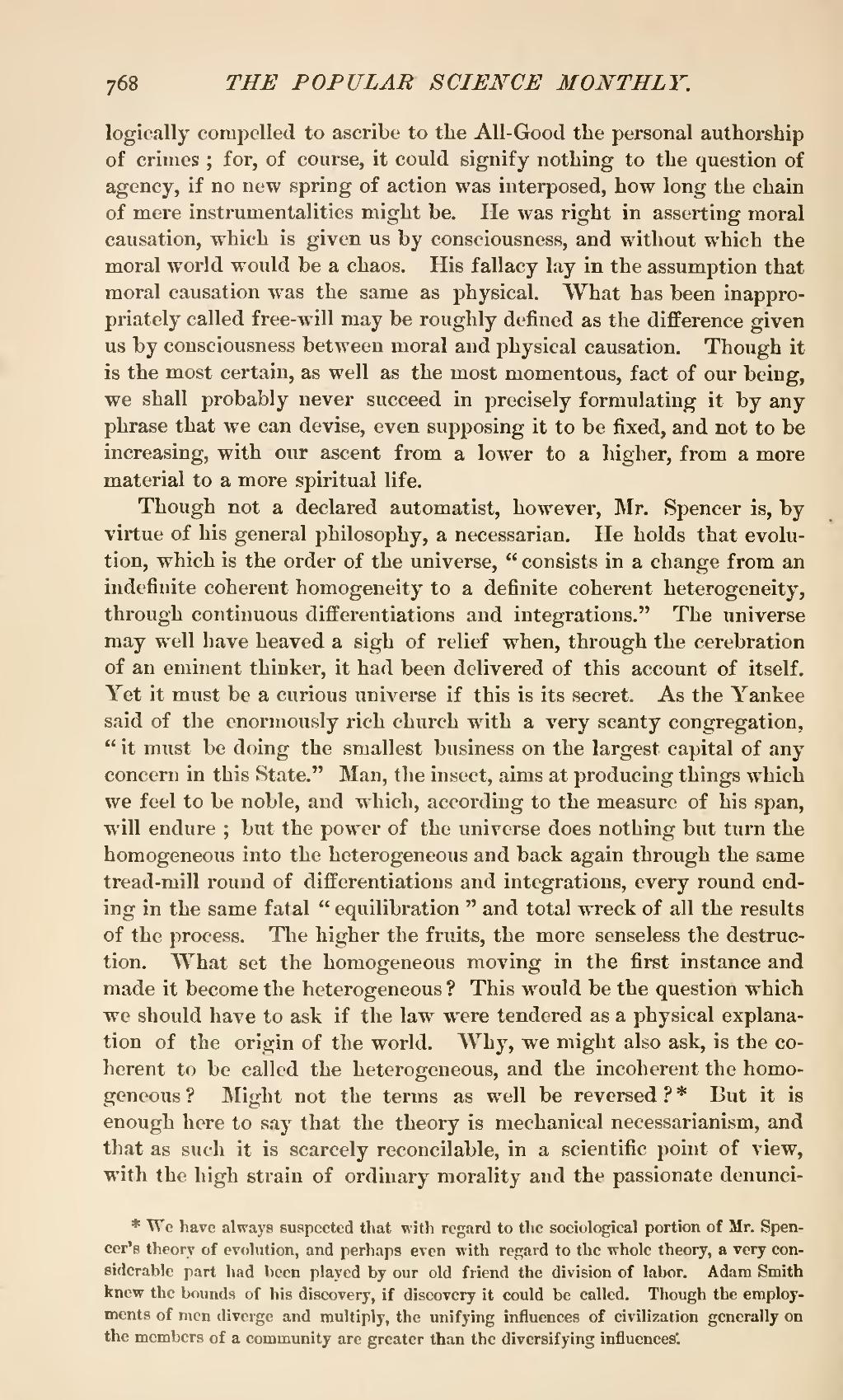logically compelled to ascribe to the All-Good the personal authorship of crimes; for, of course, it could signify nothing to the question of agency, if no new spring of action was interposed, how long the chain of mere instrumentalities might be. He was right in asserting moral causation, which is given us by consciousness, and without which the moral world would be a chaos. His fallacy lay in the assumption that moral causation was the same as physical. What has been inappropriately called free-will may be roughly defined as the difference given us by consciousness between moral and physical causation. Though it is the most certain, as well as the most momentous, fact of our being, we shall probably never succeed in precisely formulating it by any phrase that we can devise, even supposing it to be fixed, and not to be increasing, with our ascent from a lower to a higher, from a more material to a more spiritual life.
Though not a declared automatist, however, Mr. Spencer is, by virtue of his general philosophy, a necessarian. He holds that evolution, which is the order of the universe, "consists in a change from an indefinite coherent homogeneity to a definite coherent heterogeneity, through continuous differentiations and integrations." The universe may well have heaved a sigh of relief when, through the cerebration of an eminent thinker, it had been delivered of this account of itself. Yet it must be a curious universe if this is its secret. As the Yankee said of the enormously rich church with a very scanty congregation, "it must be doing the smallest business on the largest capital of any concern in this State." Man, the insect, aims at producing things which we feel to be noble, and which, according to the measure of his span, will endure; but the power of the universe does nothing but turn the homogeneous into the heterogeneous and back again through the same tread-mill round of differentiations and integrations, every round ending in the same fatal "equilibration" and total wreck of all the results of the process. The higher the fruits, the more senseless the destruction. What set the homogeneous moving in the first instance and made it become the heterogeneous? This would be the question which we should have to ask if the law were tendered as a physical explanation of the origin of the world. Why, we might also ask, is the coherent to be called the heterogeneous, and the incoherent the homogeneous? Might not the terms as well be reversed?[1] But it is enough here to say that the theory is mechanical necessarianism, and that as such it is scarcely reconcilable, in a scientific point of view, with the high strain of ordinary morality and the passionate denunci-
- ↑ We have always suspected that with regard to the sociological portion of Mr. Spencer's theory of evolution, and perhaps even with regard to the whole theory, a very considerable part had been played by our old friend the division of labor. Adam Smith knew the bounds of his discovery, if discovery it could be called. Though the employments of men diverge and multiply, the unifying influences of civilization generally on the members of a community are greater than the diversifying influences.

